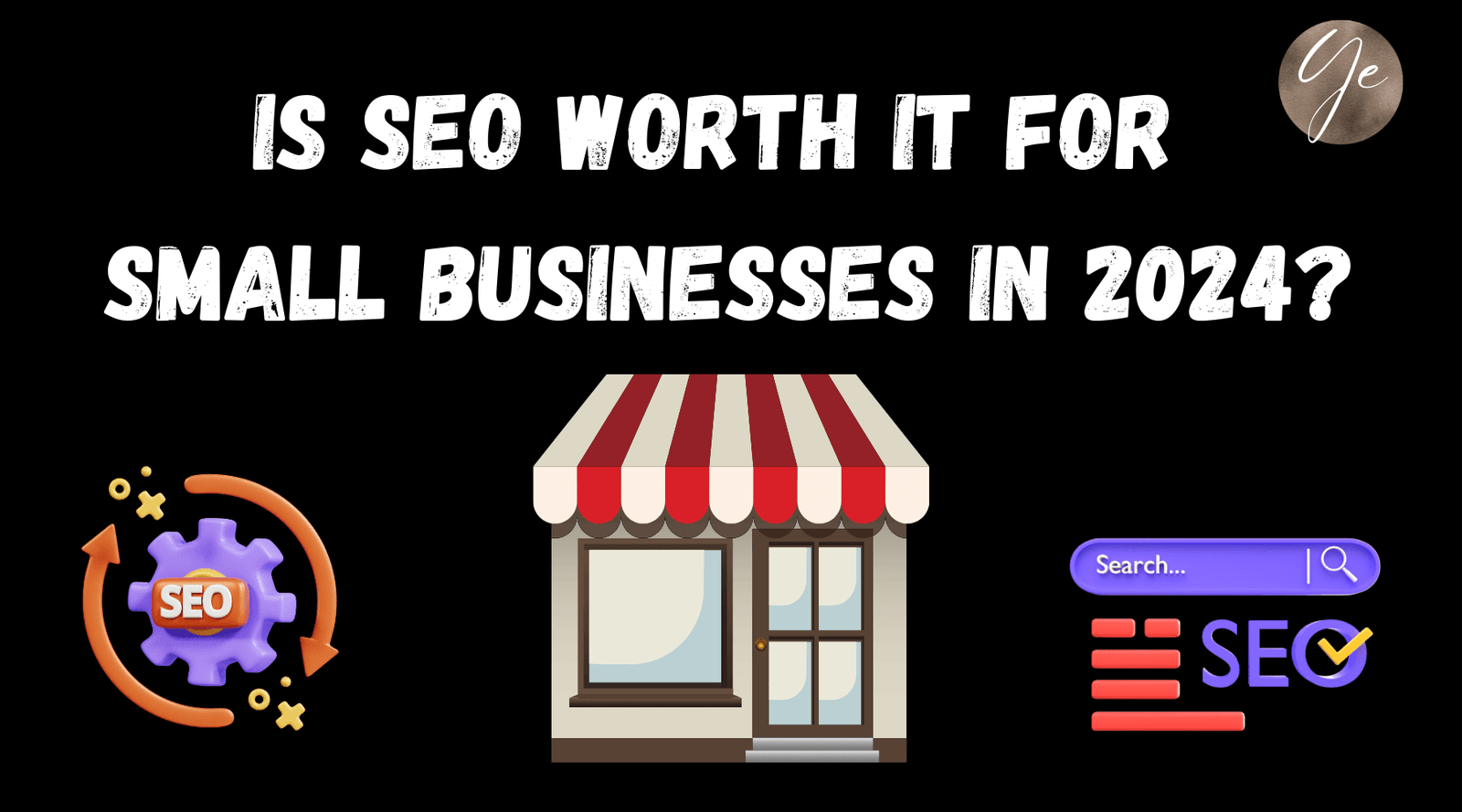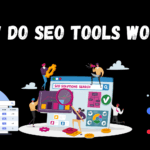You might be asking yourself if doing SEO for your small business is worth it as you think it’s just a small business, why would it need SEO, right? Actually, SEO is very important, even for small businesses. Search Engine Optimization has more effects on websites of small businesses than compared to medium or large businesses. The reason why is that small businesses’ websites can target specific, localized keywords that resonate with their community. In short, SEO works very well for small businesses.
Facts about SEO for Small Businesses
Did you know that proper SEO can keep your website ranked for up to a long time if you have done it correctly and maintained it well, unlike traditional marketing, which requires constant investment? According to recent studies, over a third of online shoppers search the internet weekly to find local businesses. By prioritizing local SEO, you can boost your brand’s visibility in your community without being very costly.
Investing in SEO today means setting your business up for long-term success. While the initial costs might feel like a big expense, the sustained benefits far outweigh the investment. SEO not only drives quality traffic to your site but also builds credibility and trust with potential customers. In the ever-competitive online industry, leveraging SEO allows small businesses to compete with larger companies, ensuring your brand stands out and attracts the right audience.
10 questions to ask yourself to decide if you need SEO or not
- What are my primary business objectives, and how important is online visibility in achieving them?
(Consider the role of SEO in attracting new customers.) - Do I rely on my website to generate leads or sales for my business?
(Reflect on the potential for SEO to increase traffic and conversions.) - Is my target audience actively searching for products or services similar to mine online?
(Think about how SEO can connect you with potential customers.) - How do I currently promote my business online, and do I see measurable results?
(Evaluate whether SEO could enhance your digital marketing efforts.) - Do I have a unique selling proposition (USP) that differentiates my business from competitors?
(Consider how SEO can highlight your USP to improve online engagement.) - Am I utilizing social media or other platforms to drive traffic to my website?
(Think about how SEO can complement these efforts by improving search rankings.) - How frequently do I update my website or add new content to engage customers?
(Reflect on the SEO benefits of fresh, relevant content.) - Do I have a defined customer persona that informs my marketing strategies?
(Consider how SEO can help you reach these specific audiences effectively.) - Am I aware of my competitors’ online presence and their SEO strategies?
(Think about the advantages of understanding the competitive landscape.) - How important is local search visibility for my business model, especially if I have a physical location?
(Consider the benefits of local SEO in attracting nearby customers.)
If you answer “Yes” to at least 4 questions, your business is likely to benefit from SEO efforts. This threshold helps determine if SEO would offer significant enough benefits for your business to warrant investment. So are you quite convinced now that you need SEO strategies? Let’s dive into more reasons on why it’s important.
Benefits of SEO for Small Businesses
They are many benefits of SEO if you have done it correctly and successfully. Your website will become your greatest asset, automatically generating your target customers for your business. I guarantee you that once you are in the top ten results of Google, you will never run out of business! Here are some of the main benefits you will get:
Attracting New Customers
SEO helps small businesses reach potential customers actively searching for their products or services. By optimizing keywords and content, I ensure your website appears in search engine results pages (SERPs). Over 50% of internet users discover businesses through search engines, making SEO a critical tool for attracting new clients.
Building Brand Credibility
A strong SEO presence builds trust with your audience. High rankings on Google signal that your business is reputable and reliable. Positive reviews further enhance credibility, allowing small businesses to compete with larger companies. By maintaining a well-optimized website, I help your brand appear authentic and authoritative on SERPs.
Cost-Effective Marketing
SEO is cheaper than traditional advertising. While ads can give quick results, they cost money every time you use them. Good SEO can bring in visitors without ongoing costs, making it perfect for small budgets.
Attracts Targeted Traffic
SEO brings in people who are already interested in what you sell. These visitors are more likely to become customers because they are searching for specific products or services.
Improves User Experience
A well-optimized website is easier to use. Fast loading times, mobile-friendliness, and good navigation make visitors happy. Google rewards these features with better rankings, which helps your business get noticed.
Offers a Competitive Edge
Good SEO can help small businesses compete with larger companies. By focusing on specific keywords or local searches, smaller businesses can attract customers in their area and stand out from the competition.
Delivers Long-Term Results
SEO is not just a quick fix; it provides lasting benefits. Once you rank well, you can keep getting traffic without spending money on ads all the time.
Effectiveness of SEO Compared to Other Marketing Strategies
Now you are thinking “Is SEO better than other marketing strategies?” Well, let me assure you that SEO is best at generating leads who have intent of buying your business, or knowing your business within that moment of searching on Google. Google Ads is similar to SEO, but at a much costly price than it. And for Facebook ads, these ads are just randomly showing up based on the profile of the users, and the user may not even have the desire to know about your business on the Facebook ads. That’s how strong Search Engine Optimization is if done right.
Return on Investment of SEO
SEO delivers a higher ROI compared to many marketing tactics. On average, businesses earn $2.75 for every $1 spent on SEO. Unlike pay-per-click (PPC) advertising, which requires continuous funding, SEO attracts organic traffic over time without ongoing costs. This makes it especially valuable for small businesses with limited budgets. Also, SEO targets users actively searching for your services, leading to higher conversion rates. By optimizing your website, you can consistently generate leads without the fluctuating expenses associated with traditional advertising methods.
Long-Term Benefits of SEO
SEO offers lasting advantages that extend beyond immediate gains. Once your website ranks high on search engines, it maintains visibility with minimal upkeep. This contrasts with social media campaigns or PPC ads, which stop delivering results once you cease investment. Effective SEO enhances your website’s authority and trustworthiness, setting a strong foundation for future marketing efforts. Also, SEO improvements like faster load times and mobile optimization contribute to a better user experience, encouraging repeat visits and customer loyalty. These long-term benefits ensure that your business remains competitive and continues to attract new customers over time.

Key SEO Strategies for Small Businesses
Implementing effective SEO strategies can significantly boost your small business’s online presence. Here are the essential tactics to get you started:
1. Make a Quality Website
A quality website is crucial for SEO success. Ensure your site is:
Clear and Functional: Easy navigation helps visitors find information quickly.
Mobile-Friendly: Over 50% of web traffic comes from mobile devices.
Fast Loading: Pages should load within three seconds to reduce bounce rates.
Secure (HTTPS): Security is a ranking factor for Google.
2. Set Up Google Analytics and Google Search Console
Tracking your SEO efforts is vital. Here’s how:
Google Analytics:
Provides insights into website traffic and user behavior.
Helps identify which pages perform best.
Google Search Console:
Monitors your site’s presence in Google search results.
Alerts you to any issues affecting your SEO.
Set both tools up to measure and improve your SEO performance effectively.
3. Set Up a Google Business Profile
A Google Business Profile enhances your local SEO by:
Displaying Essential Information: Business hours, location, and contact details.
Get more Reviews: Positive reviews build trust with potential customers.
Improving Local Visibility: Helps your business appear in local search results and Google Maps.
4. Do Basic Keyword Research
Keyword research identifies the terms your customers use. Steps include:
Identify Relevant Keywords: Use tools like Google Keyword Planner or Ahrefs free SEO generator tool
Analyze Competition: Find keywords with high search volume but low competition.
Incorporate Long-Tail Keywords: These are exact phrases that attract targeted traffic.
5. Optimize On-Page Elements
On-page optimization improves your site’s relevance. Focus on:
Title Tags: Include primary keywords and keep them under 60 characters.
Meta Descriptions: Write concise summaries with keywords to increase click-through rates.
Header Tags (H1, H2, H3): Structure your content for better readability and SEO.
Alt Text for Images: Describe images with keywords to enhance searchability.
6. Create Relevant, High-Quality Content
Helpful content and articles are kings in SEO. Ensure your content is:
Valuable and Informative: Address your audience’s needs and questions.
- Content Strategy: Plan a well-rounded content strategy on what blogs to write on your website.
Regularly Updated: Fresh content keeps your site relevant.
Optimized with Keywords: Naturally include keywords without overstuffing.
Captivating: Use visuals and clear formatting to keep readers interested.
7. Incorporate a Link-Building Strategy
Building links increases your site’s authority. Strategies include:
Guest Blogging: Write for other reputable sites in your industry.
Partnering with Local Businesses: Exchange links with complementary businesses.
Creating Shareable Content: Infographics and guides are more likely to be linked.
8. Take Advantage of Local SEO
Local SEO targets customers in your area. Key actions include:
Optimize for Local Keywords: Include your city or region in keywords.
Get Listed in Local Directories: Ensure your business appears in online directories like Yelp.
Encourage Customer Reviews: Positive reviews improve local rankings and trust.
9. Measure and Track SEO Performance
Regularly tracking your SEO efforts ensures continuous improvement. Focus on:
Key Metrics: Monitor organic traffic, bounce rate, and conversion rates using Google Analytics.
Search Rankings: Track your keyword positions in Google Search Console.
Adjust Strategies: Use data insights to refine and enhance your SEO tactics.
Ready to take your small business’s SEO to the next level? Whether you need help with keyword research, on-page optimization, or local SEO strategies, I’m here to assist. Don’t leave your online visibility to chance—let’s create a customized SEO plan that works for your business.
Have questions or need personalized advice? Feel free to reach out for a free consultation! I’d love to help your business grow and attract more local customers through effective SEO strategies.
Contact me today and let’s get started!
Is SEO Worth It for Your Small Business?
Investing in SEO offers important long-term benefits for your small business. Unlike traditional marketing, which requires continuous spending, SEO provides lasting results. According to a recent Gartner report, large companies spend an average of 13% of their yearly budget on advertising, maintaining their presence annually. In contrast, effective SEO techniques can keep your website ranked for up to ten years without frequent expenditures.
Marketing Strategy | Average Annual Cost | Long-Term Effectiveness |
|---|---|---|
Traditional Advertising | $XXXXX | Short-term |
SEO | $12,000 – $24,000 | Up to 10 Years |
Proper SEO implementation addresses on-page and technical issues, enabling your website to rank higher organically. Once optimized, your site can attract consistent traffic without ongoing costs. Also, posting high-quality blogs on various niches helps improve your rankings automatically. Google prioritizes authentic information, so positive reviews can elevate your small business above larger competitors in search results.
Overall, SEO is a valuable growth strategy for small businesses. It enhances online visibility, builds brand credibility, and provides a competitive edge without the need for constant financial investment. By prioritizing SEO, you can achieve sustained success and ensure your business remains prominent in search engine results.
Pros and Cons of Hiring An SEO Agency for Your Small Business
Hiring an SEO agency can significantly impact your small business’s online presence. Here’s a breakdown of the advantages and disadvantages.
Pros of working with an SEO Agency
Expert Knowledge: Agencies have specialized expertise in SEO strategies, ensuring your website follows best practices.
Time-Saving: Outsourcing SEO tasks allows you to focus on running your business while professionals handle your online presence.
Access to Tools: Agencies use advanced SEO tools for keyword research, analytics, and tracking, which might be too costly for small businesses to acquire independently.
Proven Strategies: Agencies carry out tested and effective SEO techniques, increasing the likelihood of improving your search engine rankings.
Scalability: As your business grows, agencies can adjust their services to meet your evolving SEO needs without the hassle of hiring additional staff.
Cons of working with an SEO Agency
Cost: Hiring an SEO agency can be expensive, which might strain a small business’s limited budget.
Less Control: You may have less direct control over the SEO strategies, relying on the agency’s methods and timelines.
Understanding Your Business: Agencies might not fully grasp your business’s unique needs and target audience, potentially affecting the effectiveness of their strategies.
ROI Timeline: SEO typically requires time to show results; the initial investment might not yield immediate returns, which can be challenging for businesses seeking quick gains.
Dependency: Relying heavily on an agency can make it difficult to manage SEO efforts independently in the future.
When deciding whether to work with an SEO agency, it’s important to weigh the benefits and drawbacks carefully. If you’re looking for expert knowledge and scalable SEO solutions but want a more personalized approach, I can offer tailored services that fit your business needs without the high costs of an agency.
Want to take control of your SEO without the hassle? I provide expert SEO consulting with a focus on small businesses—helping you grow your online presence while staying in full control of your strategies.
Reach out today for a free consultation and let’s create a customized SEO plan that works for you!



